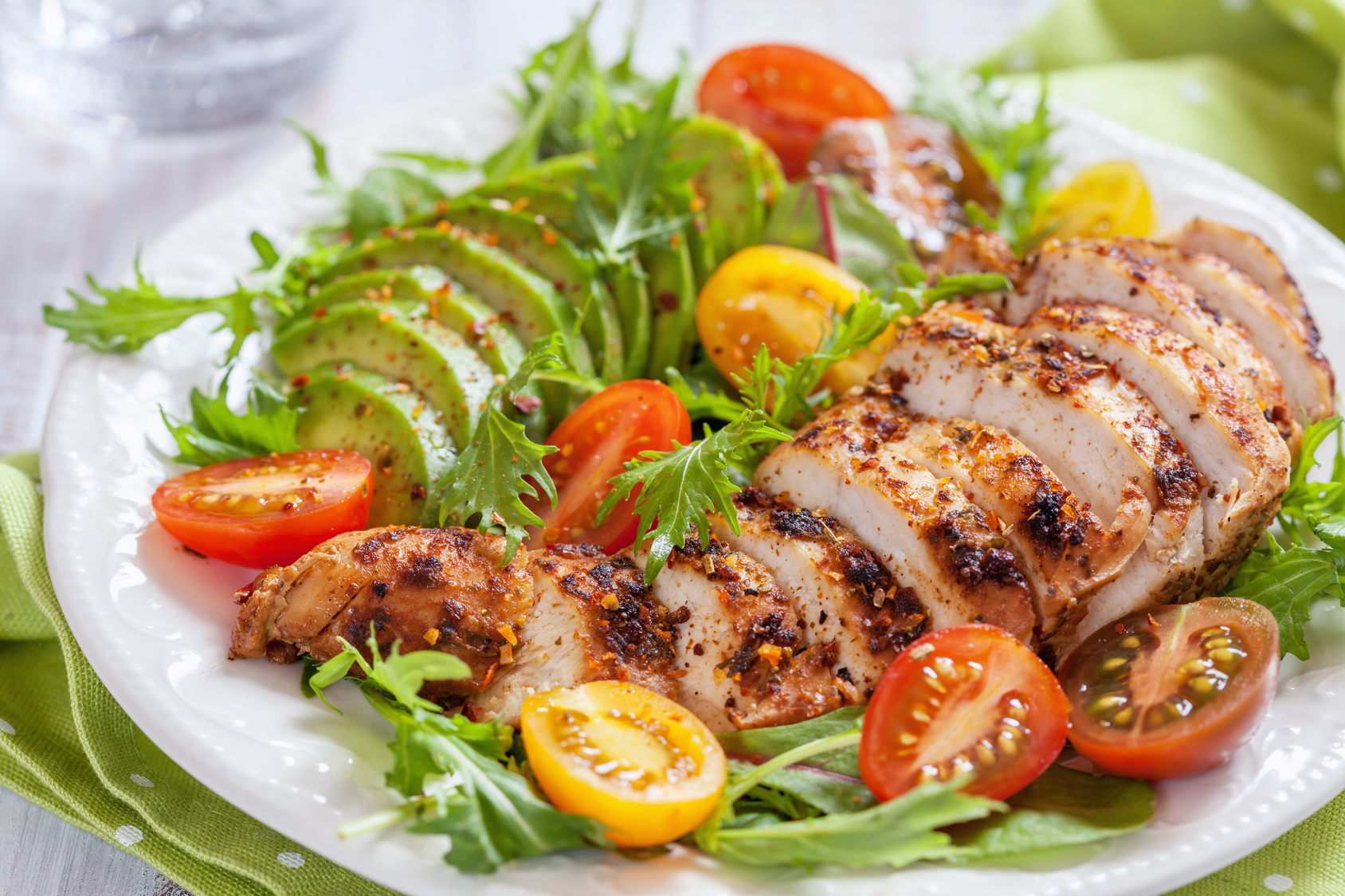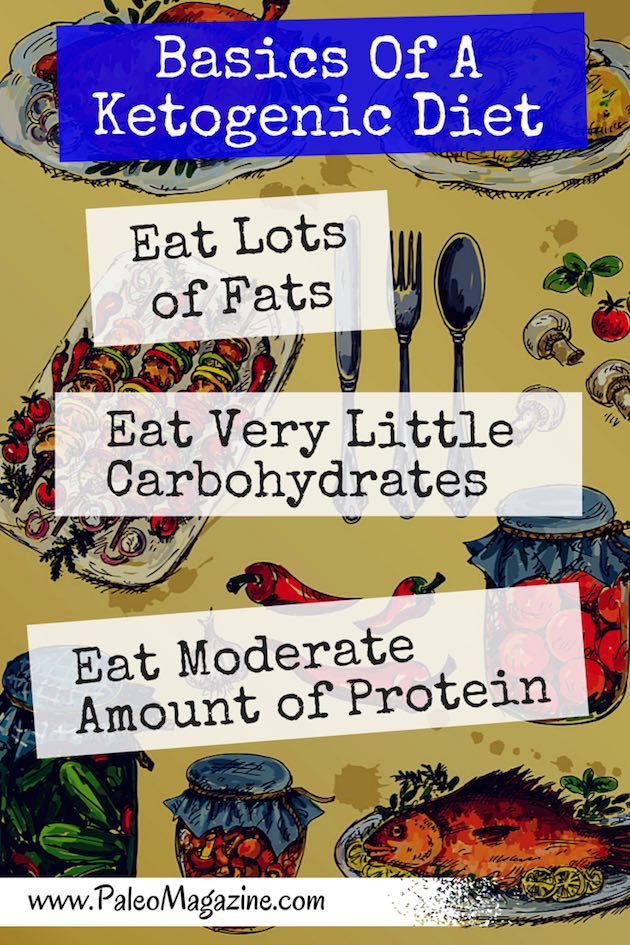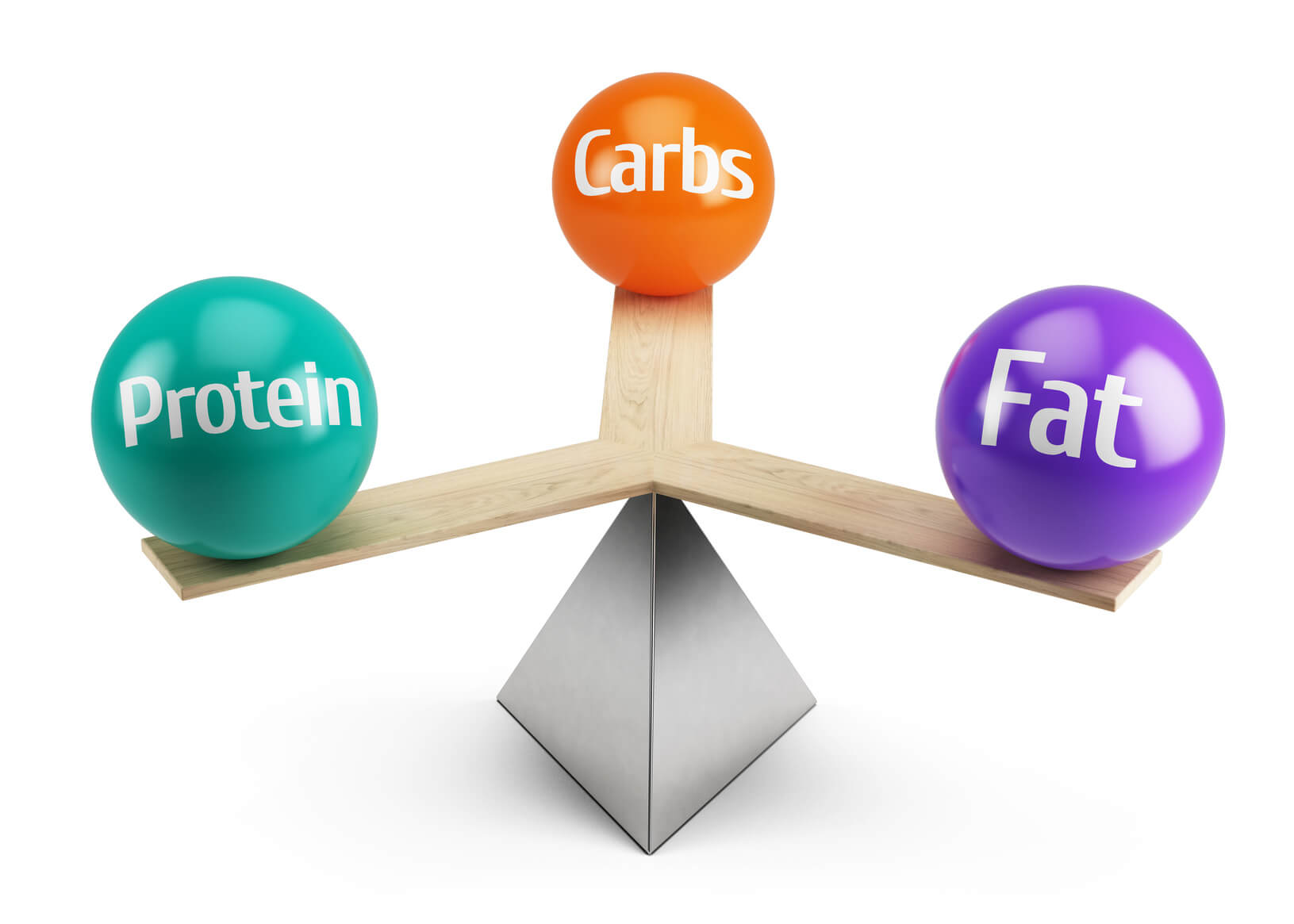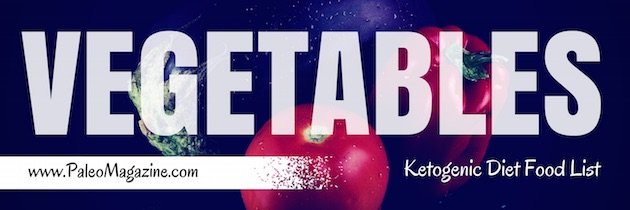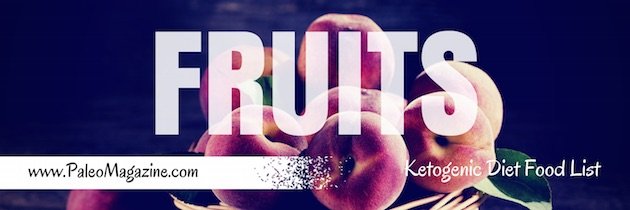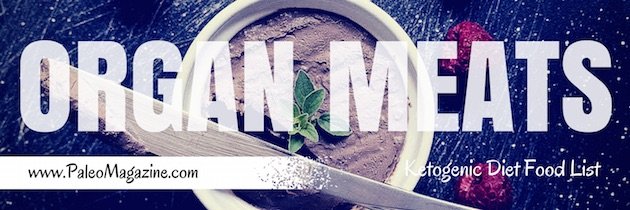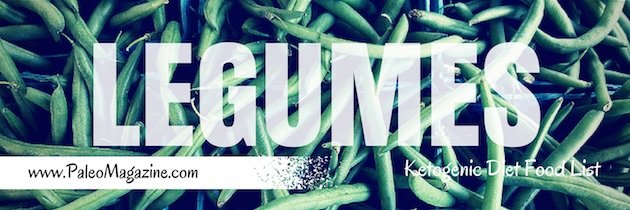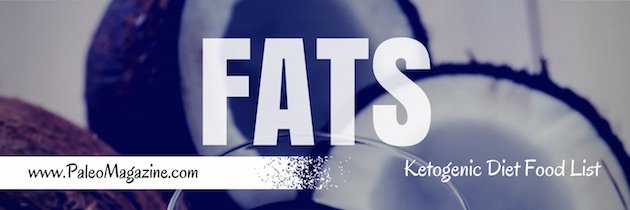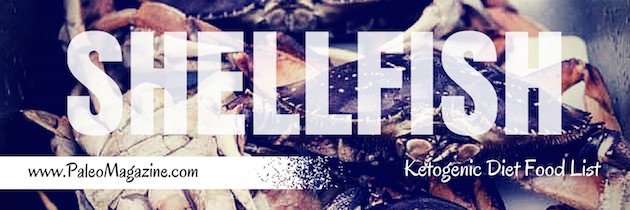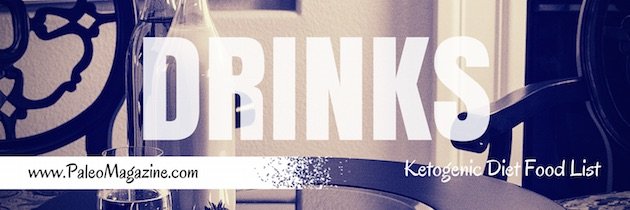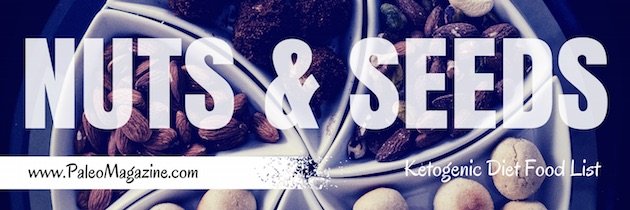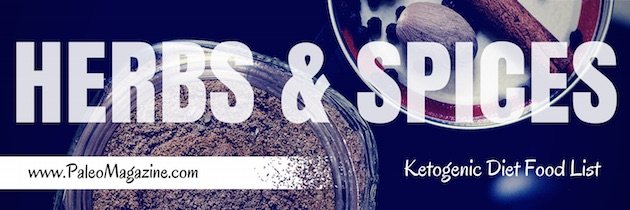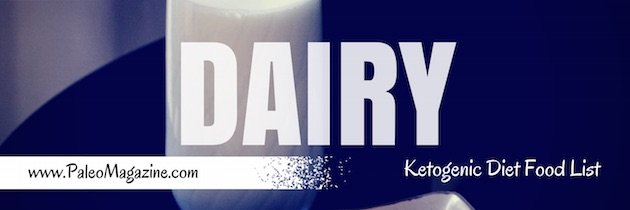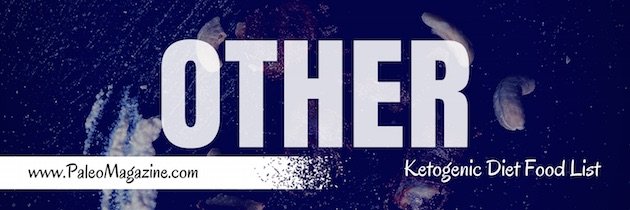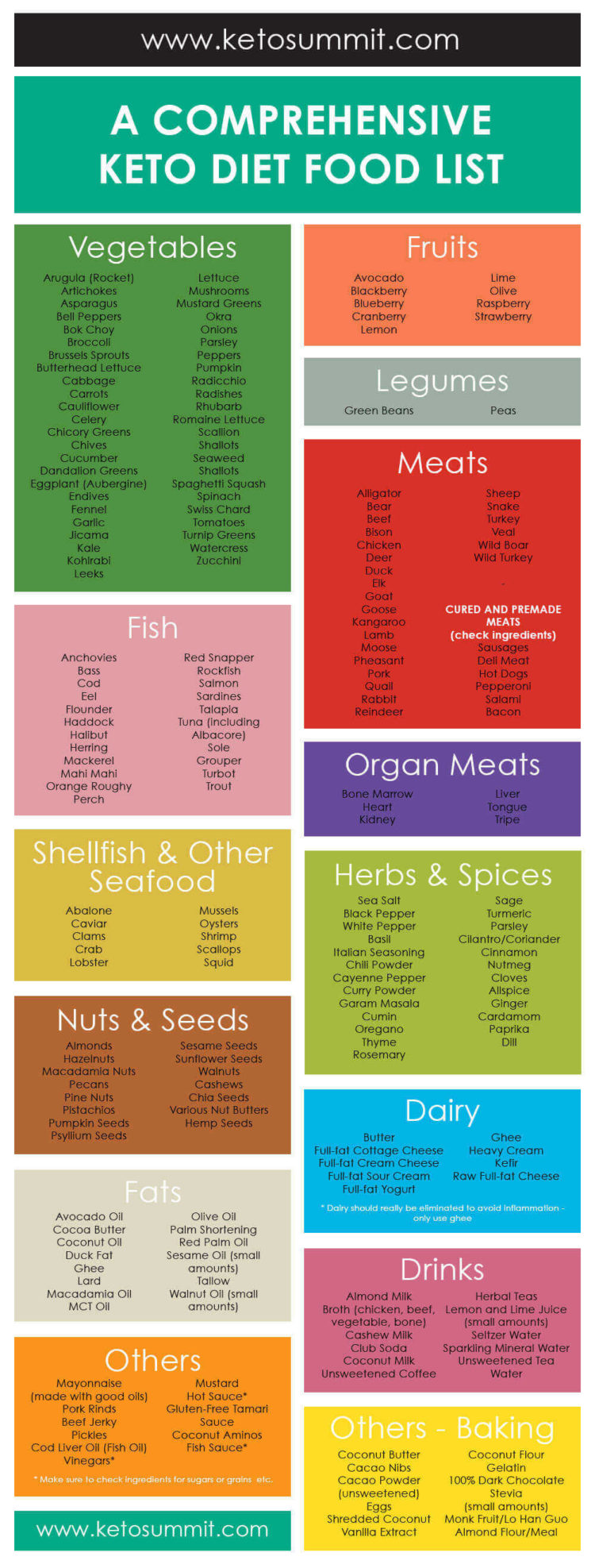Keto Food List: 221 Keto Diet Foods (+ Keto Cheat Sheet)
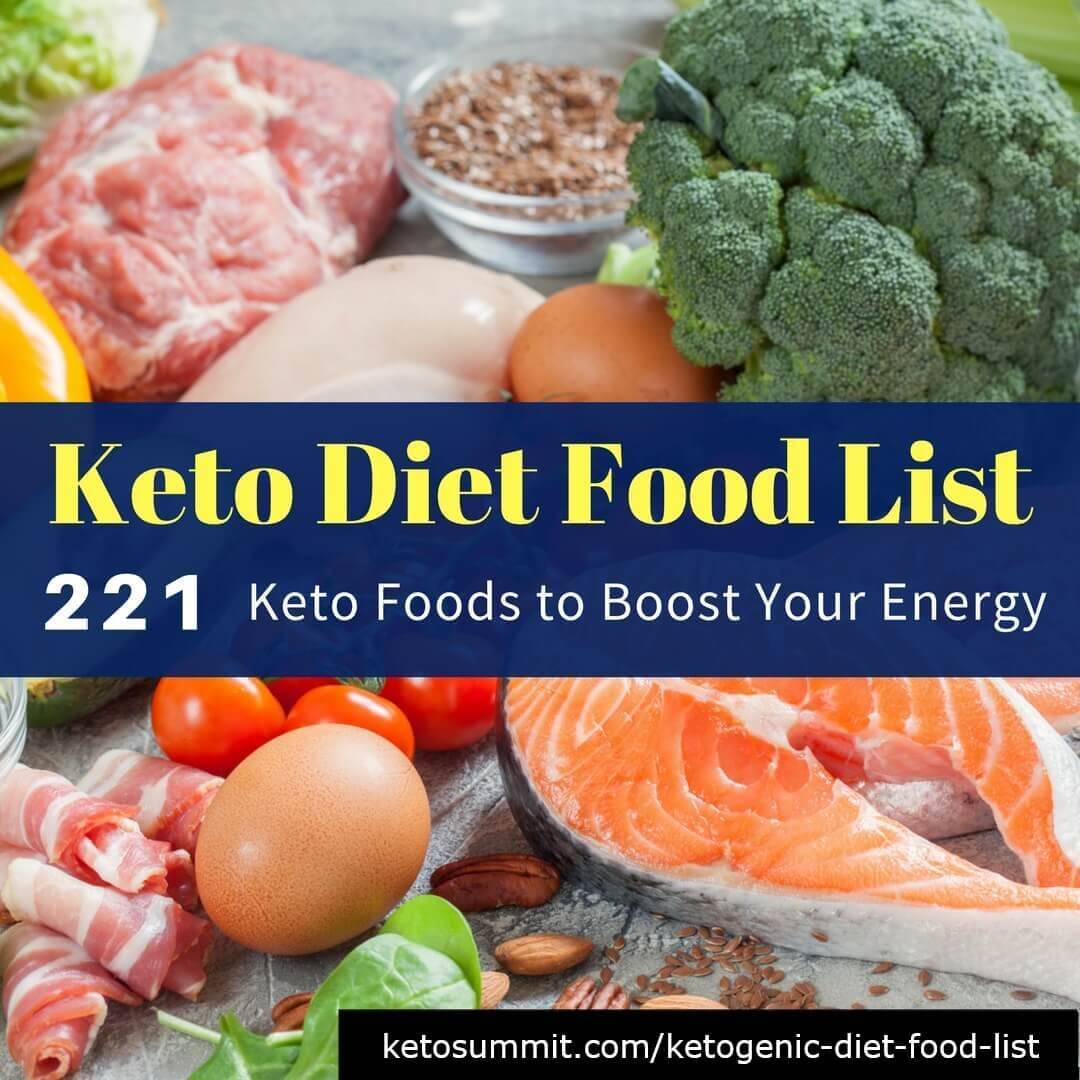
I bet you sometimes feel like it’s tough to both eat delicious food and also stay keto, right?
Well, I’ve been doing this for a very long time, and I can promise that it’s easier than you might think.
In this article, I’m going to show you exactly what to eat on a keto diet and what to avoid.
Below are over 200 keto foods – the same foods that I’ve eaten to lose weight and feel better.
3 Things You Might Be Looking For + A “Short-List” of Keto Diet Foods
The full list of 221 Keto Diet foods is below, but here are 2 helpful notes, plus a shorter list of keto foods.
- If you’re looking for recipes, then click here for 96 of my favorite keto recipes.
- If you want to learn more about the keto diet and how it can help you, then click here for my comprehensive article on the ketogenic diet.
- If you want the printable “cheat-sheet” of keto diet foods, then just click here.
The “Short & Essential” Keto Diet Food List
Basically, keto friendly foods include most meats, most vegetables, most seafood, and healthy fats.
More specifically, you can eat all the foods listed below. In fact, you could probably use this as a short and easy keto shopping list…
- Non-Starchy Vegetables
- Berries
- Meats
- Limes and lemons
- Nut butters and nut milks
- Bone broth
- Tea
- Mustards
- Shellfish and other seafood
- Nuts and Seeds
- Herbs and Spices
- Stevia
- Organ Meats
- Peas and green beans
- Gelatin
- Vinegars
- Healthy Fats (e.g., ghee, coconut oil, olive oil, etc.)
- Fish
- Avocado
- Olives
- Coffee
- Coconut
- Eggs
Ok – now that you have the short list of keto foods, let’s go a little more in depth…
Free! (Printable) “Cheat-Sheet” of Keto Diet Foods
To make things easy for you at the grocery store and in the kitchen, I also put together a printable “cheat sheet” of keto foods. To get my cheat-sheet, just click the button below:
Just click the button, print it out, and you have a keto grocery list for next time you go to the store. 🙂
There’s Only One Reason to Use This Keto Foods List…
There’s really only 1 reason to use this food list – because you want to look and feel better.
If you stick to eating just the foods below, then you’ll almost definitely get into ketosis and you’ll likely lose weight. Most importantly, you’ll certainly feel better.
In some studies, only 38% of people can stick to a keto diet — that means that 62% of people on Keto fall off the wagon.
Basically, if you’re not prepared, a keto diet can be hard, and you won’t get the results you’ve hear about.
So in the keto diet food list below, I’ll show you 221 foods that will help you burn fat and boost your energy. Most of the 221 foods are very common and easy-to-find. With them, you can create thousands of meals that you’ll love.
Basics of a Keto Diet to Help You Feel & Look Better
What is Ketosis?
‘Ketosis’ is a state where your body relies primarily on ‘ketone bodies’ for energy, rather than on sugar.
That sounds complicated, but it’s really pretty simple. And here’s why it should matter to you…
Your body has 2 primary sources of energy – fat and sugar (aka glucose).
A ketogenic diet (AKA, a keto or ketosis diet) is designed to help your body burn more fat for energy rather than glucose.
Ketones (or ketone bodies) are produced by your liver when your body breaks down fats. And the increased levels of ketone bodies in your blood puts you into the metabolic state called ketosis.
How does a Keto Diet Really Work?
Here’s a VERY simple infographic explaining what you need to do on a keto diet…
Please pin this infographic! And here’s the embed code for your blog or website:
<a href=”https://ketosummit.com/ketogenic-diet-food-list”><src=”https://18008579627329362eda2218-rg2mjh9f0tf5llf.netdna-ssl.com/wp-content/uploads/2017/05/KetogenicDietFoodListInfographicImage-s-1.jpg” alt=”Complete Ketogenic Diet Food List Infographic https://ketosummit.com/ketogenic-diet-food-list #keto #ketogenic” title=”Complete Ketogenic Diet Food List Infographic https://ketosummit.com/ketogenic-diet-food-list #keto #ketogenic”></a>Source: <a href=”https://ketosummit.com”>Keto Summit</a>
The basics of what you eat on a ketogenic diet are pretty simple:
- Eat Very Little Carbohydrates or Sugar
- Eat Lots of Healthy Fats
- Eat a Moderate Amount of Protein
In other words, you eat only low-‘glycemic’ foods. Low-glycemic foods are foods that don’t cause your blood sugar to rise very much.
When you eat this way, it forces your body to start relying on fat for energy, rather than just sugar.
And when that happens, you gain ‘metabolic flexibility’, which is a complicated way of saying that your body regains the ability to get energy from multiple sources.
The result is that you feel increased energy, greater mental clarity, and weight loss.
The ketogenic diet has been used for a very long time. It was originally developed to treat epilepsy in kids. (2) Today, though, the benefits are often much greater…
7 Proven (But Surprising) Benefits of a Keto Diet
There is a lot of emerging research on the keto diet. Some of the most exciting research is around cancer and neurological diseases, but most people use a keto diet for much more common issues (weight loss, diabetes, etc.).
Here’s a brief list of the potential benefits of a keto diet:
- Decreased Hunger - (3, 4) Most diets rely on counting calories, restricting portions, or maintaining willpower. But all of that can be hard. Because a keto diet changes the way your body fuels itself, the most common result is that your hunger decreases and you automatically start eating less.
- Weight Loss - (5, 6) It’s not a magic solution, but by-and-large, weight loss happens more quickly and easily on a keto diet. This is particularly true because a keto diet helps to decrease hunger. However, you must be prepared, because the biggest downfall for most folks is not being able to stick to the diet.
- Healthy Blood Sugar Levels - (7) This benefit should be obvious. If you have high blood sugar or are diabetic, then dramatically reducing the amount of sugar in your blood by removing most of the sugar from your diet is an obvious and quick benefit.
- Reduced Risk of High Cholesterol and Triglycerides - (8) Many doctors originally thought that a diet high in fat might increase cholesterol and triglycerides. However, the opposite has turned out to be the case. Most people see a significant drop in their LDL and triglycerides when on a keto diet, although a small percentage of people do see the opposite effect.
- Neurological Disorders - (9) The ketogenic diet was originally used to treat epilepsy – a neurological disorder. In addition to epilepsy, though, some practitioners and researchers are using a keto diet to effectively treat other neurological disorders – particularly Alzheimer’s disease.
- Certain Forms of Cancer - (10) A lot of researchers are currently working on using a keto diet as a ‘complementary’ cancer treatment. And for certain forms of cancer – particularly brain cancer – the keto diet is showing a lot of benefit when used with other traditional treatments.
- Possible Other Benefits - (11) The research is not conclusive yet, but several studies have observed other possible benefits of a keto diet, including treatment of acne, PCOS, respiratory conditions, and others.
The Truth About Suggested Macronutrient Ratios
The exact amounts of fat, carbs, and protein (also known as ‘macros’) you need to eat in order to get into ketosis will vary from person-to-person. But to help you get into the general ballpark, here are some recommendations.
Just remember that the bulk of your calories need to come from healthy, high-fat foods, and very few of your calories should come from carbs.
(Use our Keto Calculator to figure our your exact macronutrient needs.)
Carbohydrate Amount For Ketosis
We suggest you eat under 20-25 grams of net carbohydrates per day if you’re trying keto for weight loss.
A ‘net carb’ is the total amount of total carbs minus the fiber content. Since most fiber doesn’t get digested and turned into sugar, you don’t need to count fiber toward your net carbs count.
If you’re an athlete or do a lot of CrossFit, then you may need to add in more carbohydrates. Just make sure to use clean starches like sweet potatoes and extra vegetables
Jimmy Moore suggests in his book Keto Clarity that total amount of net carbs must be at least under 100g per day for you to get into ketosis, and for most people under 50g. For people with insulin sensitivities or looking to lose weight, you probably need to consume under 30g or 20g net carbs per day.
Protein Amount For Ketosis
Jeff Volek, PhD and Stephen Phinney, M.D., PhD. suggest that to calculate your minimum and maximum protein intake for staying in ketosis, you should multiply your weight (measured in lbs) by 0.6 and 1.0 to get the minimum and maximum amount of protein in grams you should eat each day.
On the Virta Health blog, Dr. Phinney, adds, “Too little or too much protein can negatively impact the many benefits of being in a state of nutritional ketosis.” He notes that too little dietary protein can compromise lean muscle tissue, while high protein intakes can reduce ketone production.
I weigh 115 lbs, so for ketosis, my minimum protein intake per day is 115 x 0.6 = 69 grams, and my maximum protein intake per day is 115 x 1 = 115 grams.
Jimmy writes in his book that Dr. Donald Layman suggests limiting protein amounts to 30g per meal and no more than 140g per day.
Fats Amount For Ketosis
After limiting carbohydrates and eating a moderate amount of protein, the rest of what you eat should be healthy fats like ghee, coconut oil, olive oil, avocado oil, and animal fats.
If you’re trying to lose weight, then you may find it easier to increase the amount of protein you eat. This may especially help you if you’re not used to eating a lot of fats.
5 Crazy-Important Things to Do While On a Keto Diet…
A keto diet is pretty simple, and most people see results fairly quickly.
But there are a few things to remember that can help make sure you get the most out of your keto diet. (These tips will also help you avoid ‘keto flu’ – the lack of energy that some people experience in the first 3-5 days of a keto diet.)
- Drink Plenty of Water. When you eat fewer carbs, your body retains less water. That’s normal, but if you’re not drinking enough, you can get dehydrated. Also, water will help you feel less hungry and more energetic.
- Get Plenty of Sodium. This might sound counter to what you’ve been told before, but your body really needs sodium. It’s one of the ways that your cells transport nutrients in and out of cells. And when you stop eating processed grains and sugar, you often get much less sodium. So when you go keto, just be sure that you’re eating salt or sodium-rich foods. If not, you will often experience fatigue.
- Eat Enough. Normally, this probably isn’t a problem for you. But when you go on a keto diet, it’s actually easy to start under-eating. So every few days, just check in that you’ve been eating enough food.
- Eat Enough Fat. Remember, most of your calories (70-85%) should be from fat. So don’t skimp on the fat. If you’re feeling hungry or like you need to snack, then eating more fat at meals will normally solve that problem. In general, choose the fattier cuts of meat.
With all of that in mind, here is the complete ketogenic diet food list…
What You’ve Been Waiting For – The Complete Ketogenic Diet Food List!
Below is a full list of foods to eat on a keto diet.
To make it easier for you, we’ve arranged the foods into 12 groups (vegetables, meats, etc.).
In general, you can just not worry about how much of a particular food you’re eating. However, some foods on this list are a bit higher in carbs – such as carrots or tomatoes.
It would have made this list way too long to list the # of carbs in each food, so just be aware that if a food tastes a bit sweet (like a carrot or tomato can), then it likely has more carbs than foods that don’t taste sweet (meats, olives, avocados, limes, etc.).
Vegetables that Taste Delicious and Will Fuel Your Body…
Veggies should be a big part of your diet. In fact, they should be the bulk of what you eat.
Try to stick to green leafy vegetables and avoid root vegetables to keep your daily carbohydrate intake low.
- Arugula (Rocket)
- Artichokes
- Asparagus
- Bell Peppers
- Bok Choy
- Broccoli
- Brussels Sprouts
- Butterhead Lettuce
- Cabbage
- Carrots
- Cauliflower
- Celery
- Chicory Greens
- Chives
- Cucumber
- Dandelion Greens
- Eggplant (Aubergine)
- Endives
- Fennel
- Garlic
- Jicama
- Kale
- Kohlrabi
- Leeks
- Leafy Greens (Various)
- Lettuce
- Mushrooms (all kinds)
- Mustard Greens
- Okra
- Onions
- Parsley
- Peppers (all kinds)
- Pumpkin
- Radicchio
- Radishes
- Rhubarb
- Romaine Lettuce
- Scallion
- Shallots
- Seaweed (all sea vegetables)
- Shallots
- Spaghetti Squash
- Spinach
- Swiss Chard
- Tomatoes
- Turnip Greens
- Watercress
- Zucchini
FERMENTED VEGETABLES
- Kimchi
- Sauerkraut
Fruits? Yep…You Can Eat These Fruits on a Keto Diet…
However, some small amounts of berries and citrus fruits are ok – just watch how much you eat!
Olives and Avocados are great. (Yes avocado is a fruit!) Heart surgeon Steven Gundry, M.D. speaks highly of them. “Avocados are rich in healthy omega-3 fatty acids. They’re also full of dietary fiber and high in vitamin K, folate, and vitamin C. And did you know that avocados contain more potassium than bananas?”
- Avocado
- Blackberry
- Blueberry
- Cranberry
- Lemon
- Lime
- Olive
- Raspberry
- Strawberry
Meats are Some of the Best Keto Foods
- Alligator
- Bear
- Beef
- Bison
- Chicken
- Deer
- Duck
- Elk
- Goat
- Goose
- Kangaroo
- Lamb
- Moose
- Pheasant
- Pork
- Quail
- Rabbit
- Reindeer
- Sheep
- Snake
- Turkey
- Veal
- Wild Boar
- Wild Turkey
CURED AND PREMADE MEATS (check ingredients)
- Sausages
- Deli Meat
- Hot Dogs
- Pepperoni
- Salami
- Bacon
Organ Meats
In the United States, organ meats have fallen out of favor. But there is no other category of food that is as nutritious. Organ meats are also fattier than other meats, which works well on a keto diet.
Registered Dietitian Natalie Olsen, RD notes, “Liver is the most nutrient dense organ meat, and it is a powerful source of vitamin A. Vitamin A is beneficial for eye health and for reducing diseases that cause inflammation, including everything from Alzheimer’s disease to arthritis.”
Eat any of the following organ meats from pretty much any animal.
- Bone Marrow
- Heart
- Kidney
- Liver
- Tongue
- Tripe
Fats
Fats play a huge part in the ketogenic diet (they make up the majority of your calorie intake), so make sure you’re taking in plenty of healthy fats.
- Avocado Oil
- Cocoa Butter
- Coconut Oil
- Duck Fat
- Ghee
- Lard (non-hydrogenated)
- Macadamia Oil
- MCT Oil
- Olive Oil
- Palm Shortening
- Red Palm Oil
- Sesame Oil (small amounts)
- Tallow
- Walnut Oil (small amounts)
Nuts and Seeds
According to Dr. Andrew Weil, M.D., “The latest scientific word on the health benefits of nuts comes from researchers at California’s Loma Linda University who found that eating nuts on a regular basis strengthens the brainwave frequencies seen on electroencephalograms (EEGs) that are linked to cognition, healing, learning, and memory.”
But don’t go wild on nuts and seed, because they’re easy to overeat and high in omega-6 fats. These also add to your carbohydrate intake, so watch out. Lastly, note that peanut is a legume, not a nut, and is not recommended.
- Almonds
- Hazelnuts
- Macadamia Nuts
- Pecans
- Pine Nuts
- Pistachios
- Pumpkin Seeds
- Psyllium Seeds
- Sesame Seeds
- Sunflower Seeds
- Walnuts
- Cashews
- Chia Seeds
- Various Nut Butters
- Hemp Seeds
Herbs and Spices
Experiment with these herbs and spices as they’ll make your food really delicious! Make sure the check the ingredients of any herb or spice blends to avoid added sugar or MSG.
- Sea Salt
- Black Pepper
- White Pepper
- Basil
- Italian Seasoning
- Chili Powder
- Cayenne Pepper
- Curry Powder
- Garam Masala
- Cumin
- Oregano
- Thyme
- Rosemary
- Sage
- Turmeric
- Parsley
- Cilantro/Coriander
- Cinnamon
- Nutmeg
- Cloves
- Allspice
- Ginger
- Cardamom
- Paprika
- Dill
Dairy
Not everyone can tolerate dairy – you should eliminate dairy except for ghee to reduce your inflammation. Many people consider full-fat cheese, yogurt, and cream to be ketogenic. And while these foods may be low carb, they can be easy to overeat (in great excess) as well as cause inflammation and digestive issues for many people.
- Ghee
Other Foods to Eat on a Keto Diet
These foods are some foods that don’t fall neatly into other categories.
Although we listed a couple below, I encourage you – as much as possible – to avoid ‘keto’ processed foods. This could include ‘keto’ sauces, condiments, nut flours, and other ‘keto’ foods that attempt to replace traditionally non-keto foods.
- Mayonnaise (made with good oils – see list of fats)
- Coconut Butter
- Pork Rinds
- Beef Jerky
- Pickles
- Cod Liver Oil (Fish Oil)
- Cacao Nibs
- Cacao Powder (unsweetened)
- Vanilla Extract
- Vinegars (but check the ingredients – many have added sugar or wheat)
- Eggs (of any animal)
- Shredded Coconut
- Mustard
- Hot Sauce (check ingredients)
- Gluten-Free Tamari Sauce
- Coconut Aminos
- Fish Sauce (check ingredients)
- Gelatin (as powder or from bone broth)
- 100% Dark Chocolate
- Erythritol
- Coconut Flour
- Stevia (only small amounts)
- Monk Fruit / Lo Han Guo
- Almond Flour/Meal
FOODS TO AVOID ON A KETO DIET
Knowing what NOT to eat on a keto diet is at least as important as knowing what to eat. So this keto diet food list wouldn’t be complete without a list of non-keto foods.
Here is a list of all foods to definitely avoid:
All Sugars (Avoid)
Sugar of every type is completely off limit. Here are some of the many forms of sugar:
- White Sugar
- Fructose
- Corn Syrup
- Dextrose
- Maltodextrin
- Honey
- Glucose
- Maple Syrup
- Maltose
- Agave
- Coconut Sugar
- Brown Sugar
- Lactose
All Grains (Avoid)
Grains are all high in carbs and should be avoided completely. Here is a list of the most common grains (a few of these are ‘pseudo-grains’, but they should also be avoided):
- Wheat
- White Flour
- Quinoa
- Rye
- Couscous
- Most flours
- Rice
- Wheat Flour
- Oats
- Barley
- Cornmeal
- Corn
- Rice Flour
- Millet
- Bran
- Buckwheat
Processed Foods (Avoid)
Processed foods are pretty much anything you can buy in a box or in a bag. It’s a ‘catch-all’ term, but if it comes in box or bag, then it’s probably not keto-friendly and is off-limits.
- Bread
- Potato Chips
- Ice Cream
- Waffles
- Candy
- Crackers
- Tortilla Chips
- Pretzels
- Pancakes
- Most Condiments (Ketchup, BBQ Sauce, Dressing, etc.)
- Cookies
- Baked Goods
- Snack Bars
- Cereal
- Most Sauces
Most Fruit (Avoid)
Fruit can be healthy in an abstract sense, but when you’re trying to stay in ketosis, most fruit is not keto-friendly.
- Canned Fruit
- Apples
- Oranges
- Pears
- Peaches
- Pomegranate
- Nectarines
- Grapes
- Watermelon
- Cantaloupe
- Kiwi
- Date
- Bananas
- Cherries
- Mangos
- Apricot
- Papaya
- Fig
Drinks (Avoid)
Watch out for hidden sugar in drinks! Here is a list of the most common drinks to be avoided:
- Sodas
- Sports Drinks
- Juices
- All Alcohol
- Milk
- Sweetened Tea or Coffee
Legumes (Avoid)
Legumes consist mostly of beans (baked, black, red, etc.). Except for the 2 legumes listed above (green beans and peas), avoid all legumes.
- All beans
- Lentils
- Soybeans
Low Carb Foods To Avoid

Just because a food is low in carbohydrates or high in fats doesn’t make it keto! So try to avoid these foods even though they are low carb.
Dairy Products (e.g., kefir, yogurt, cheese, cottage cheese, cream cheese, cream, sour cream, butter)
- Sugar Alcohols
- Blue Cheese Salad Dressing
- Canola, Sunflower Seed, and other seed or vegetable oils
- Artificial Sweeteners (splenda, sucralose, etc.)
- Low carb gluten-containing foods
- Peanut butter
- Diet sodas
- Soy products (e.g., soy milk, tofu)
Note: Artificial sweeteners won’t necessarily throw you out of ketosis, so many people consider them ‘ok.’ However, artificial sweeteners can adversely affect your gut bacteria and can also stop you from getting over sugar cravings. They also have a slight insulinogenic effect.
FINAL THOUGHTS
I hope that you find this keto food list useful. But there are a few more things you should keep in mind…
Keto Flu
Sometimes, when you start a keto diet, you can experience what’s called ‘keto-flu‘. Here are some of the common symptoms:
- Feeling tired or fatigued
- Headaches
- Feeling moody or ‘hangry’
- Weakness or muscle aches
- Lack of mental clarity
To avoid or treat these symptoms, here are 4 tips that commonly help:
- Eat More Sodium & Potassium. This is the most common cause of keto flu – not getting enough electrolytes. These minerals are necessary for energy production, and if you get low, you’ll feel tired. Try eating more bone broth, more salt, and more avocados.
- Eat More Fat. Another common cause of keto flu is not eating enough. The simplest solution is to eat more fat. And the best ways to do that are to eat more fatty meats or to add more healthy fats (like olive oil) to your veggies and other foods.
- Drink Plenty of Water. Dehydration is common and can cause all of the keto-flu symptoms. It’s also the easiest thing to fix – just drink water regularly throughout the day.
- Rest More and Exercise a Bit Less. Exercise is great, but you must make sure you’re sleeping and resting enough. Changing how you fuel your body (by relying more on fat) can be a bit stressful at first. So you might need more rest when you first start out.
- Consider using an exogenous ketone supplement. It will boost your blood ketone levels quickly, speeding up or even eliminating that funky keto flu transition.
Modified Keto Diet
One other thing worth mentioning is that there are different ‘types’ of keto diets.
The ‘traditional’ keto diet is usually called the Standard Ketogenic Diet (SKD). This is the diet that was originally created for epileptic children.
The SKD version of the keto diet typically requires that you eat less than 20-30 grams of carbohydrates. It also requires that you closely monitor how much protein you eat, so that you don’t go over 12-15% of your calories from protein.
This is a great version of keto, and if you’re using the diet for therapeutic purposes, it’s the best way to go. But if you’re more interested in weight loss and boosting your energy, then you might also want to consider what’s commonly called the “Modified Atkins Diet.”
The primary difference for this diet is the amount of different ‘macros’ that you can eat. Your net carbs can be a bit higher (50-75 grams per day), and your protein intake can also be a bit higher (up to 20% or so of calories).
This “modified” version of keto can be very useful to try if either (a) you find that the stricter version isn’t working for your or (b) you want a slightly more lenient diet to use after you’ve achieved your goals.
DOWNLOAD OUR KETO FOOD LIST
If you want an easy-to-print version of the keto food list, just click the button below. It’s perfect to use or modify as a keto diet grocery list.
KETOGENIC DIET FOOD LIST INFOGRAPHIC
Please pin this detailed Ketogenic diet food list infographic on Pinterest. If you have a blog or website and would like to embed the infographic, please credit us for our work or use this embed code:
<a href=”https://ketosummit.com/ketogenic-diet-food-list”><src=”https://18008579627329362eda2218-rg2mjh9f0tf5llf.netdna-ssl.com/wp-content/uploads/2017/05/KetogenicDietFoodListInfographicImage-s-1.jpg” alt=”Complete Ketogenic Diet Food List Infographic https://ketosummit.com/ketogenic-diet-food-list #keto #ketogenic” title=”Complete Ketogenic Diet Food List Infographic https://ketosummit.com/ketogenic-diet-food-list #keto #ketogenic”></a>Source: <a href=”https://ketosummit.com”>Keto Summit</a>
To see all the tasty Keto meals you can make from these ingredients check out our Keto recipes page.
There’s everything from breakfast, to dinner, lunch, appetizers, condiments, smoothies, desserts, snacks, and more! Just click here for hundreds of 100% keto recipes.

